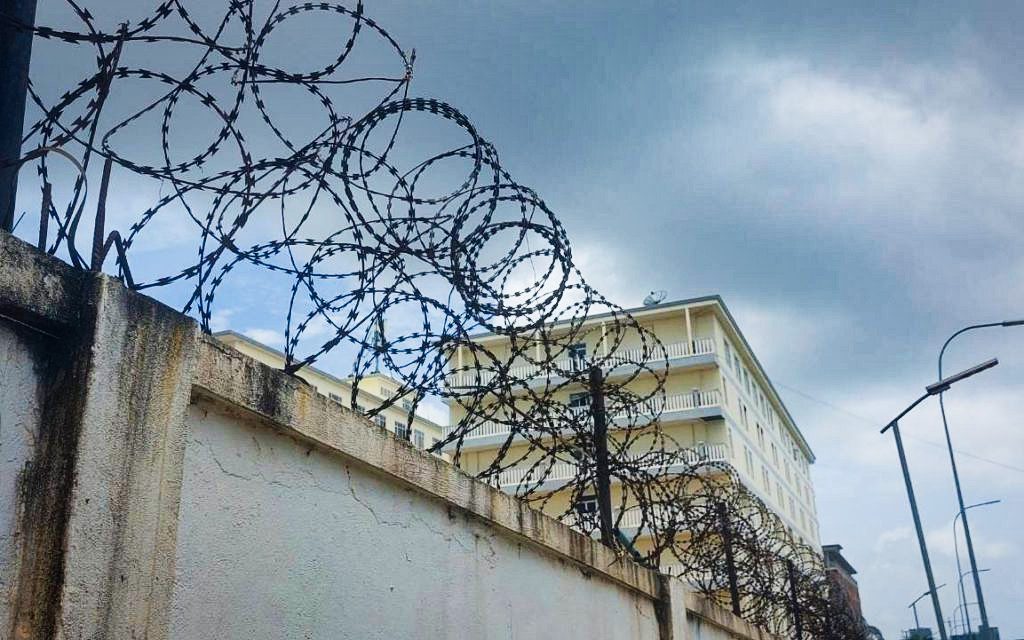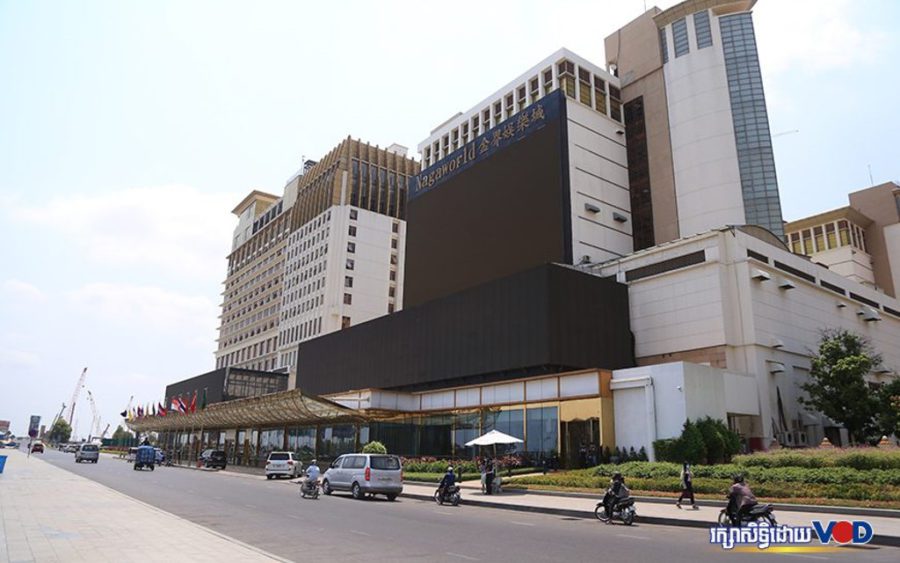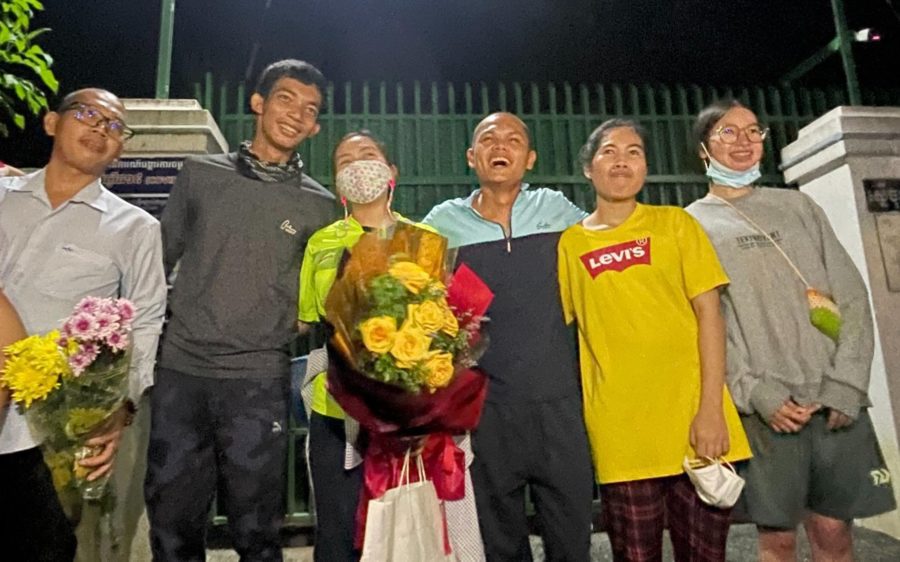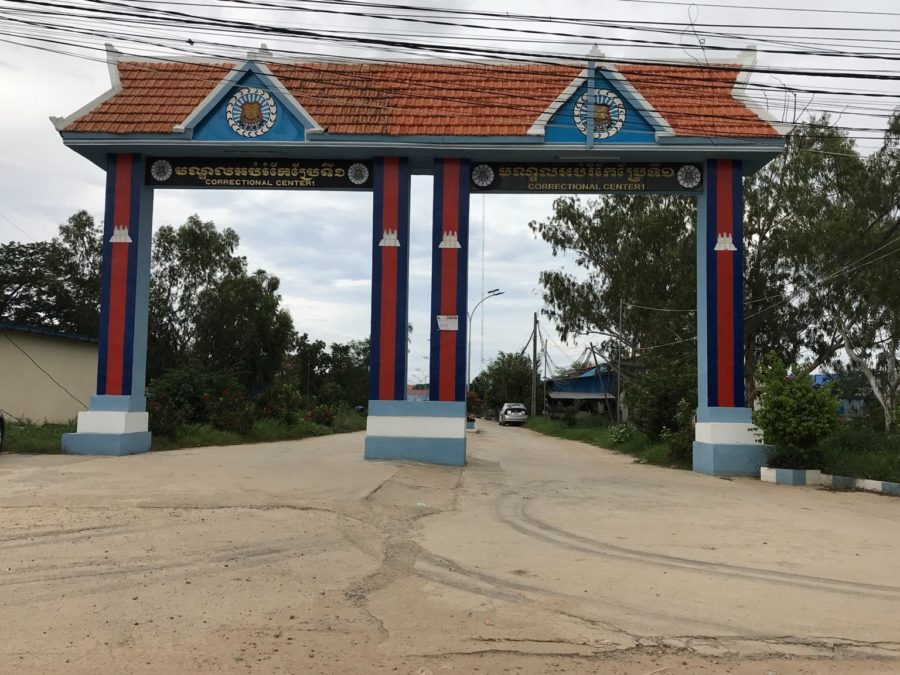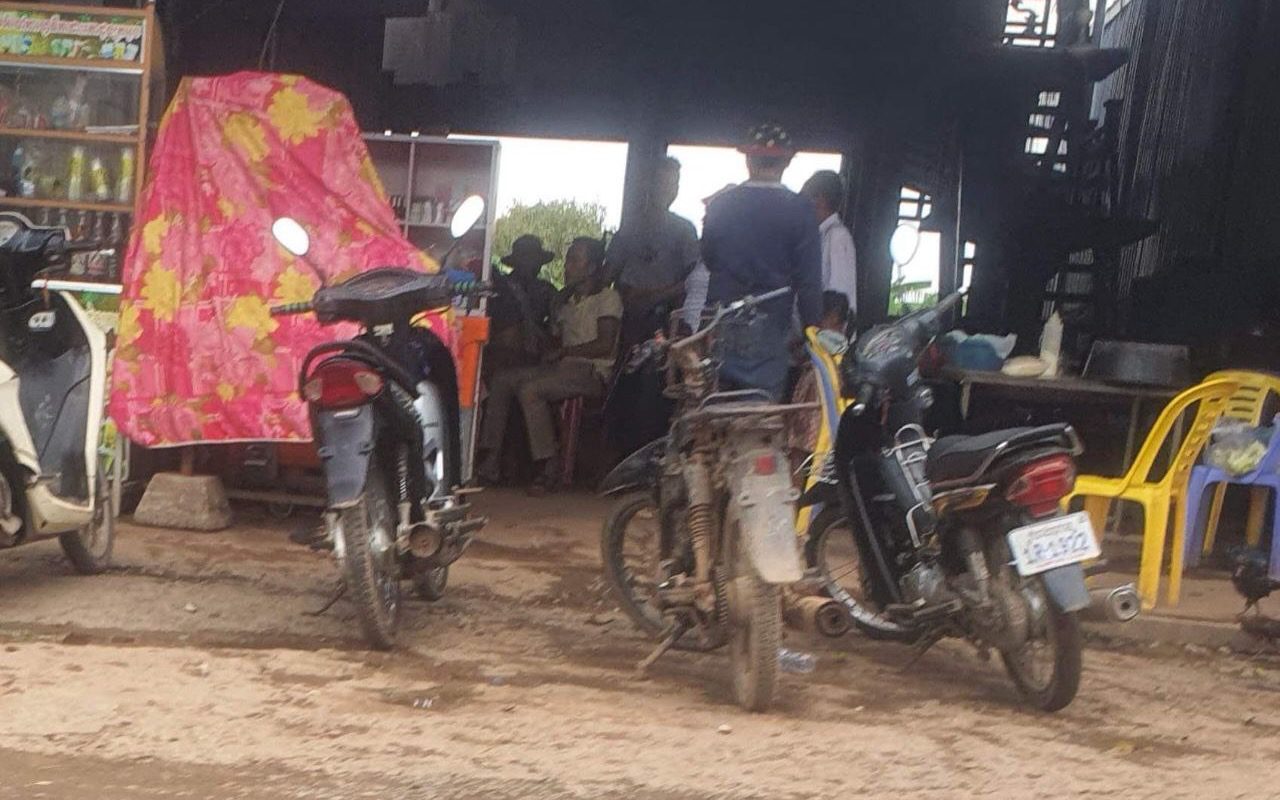Both Cambodian and foreign workers must be allowed to leave their workplaces after work, the Labor Ministry clarified during a press conference on Wednesday, while deflecting a question about the nature of global scams being perpetrated out of Cambodia.
During a review of the ministry’s work over the last five years, Labor Ministry spokesman Heng Sour was asked about Cambodia’s spate of human trafficking in which thousands of foreign workers have been trapped in criminal scam compounds and forced to cheat people online.
One of the centers of the trafficking and scams has been the coastal city of Sihanoukville, where authorities have now raided 10 compounds and found over 2,000 workers.
Sour said on Wednesday that the city had a total of 60,000 foreign workers with work permits, and estimated that there were a further 10,000 to 12,000 without.
The ministry had acted on 247 cases of human trafficking in Sihanoukville involving 586 people, and 368 cases involving 867 people of 11 nationalities countrywide, he said.
He explained that the Labor Law does not allow employers to confine employees in their workplaces. After work hours, employees both Cambodian and foreign have the freedom to leave, Sour said.
In past months, police have repeatedly rejected that workers were being detained at the scam compounds, calling their calls for help a matter of contractual disagreements.
Sour added that cheating foreign workers to come with false information was a part of human trafficking.
“In our country it is also the same: They promise work at this or that place to get a high salary, so those foreigners come. But when they arrive, they have their passports taken and are not allowed to go anywhere. This is a thing that our Cambodia does not support and we are absolutely against this.”
Asked what the foreign workers did at the scam compounds — where there have been widespread reports of romance, cryptocurrency and other scams targeting victims around the world — Sour followed other government officials’ lead in avoiding the question.
“Mostly they work in casinos, and for this gambling that we have seen the strategy they use to cheat people to come work here.”


